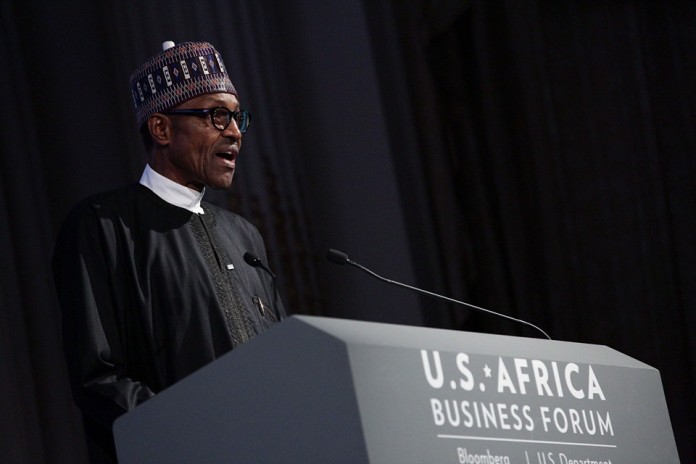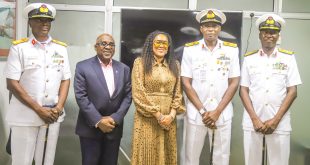
This was as he promised some fiscal incentives such as five-year tax holiday for activities classified as ‘pioneer’; tax-free operations; no restrictions on expatriate quotas in Free Trade Zones; and a Value Added Tax regime of five per cent.
The President stated this on Wednesday while addressing a large gathering of political and business leaders from the United States, Africa and other regions of the world at the 2nd United States-Africa Business Forum in New York, organised by the US Department of Commerce and Bloomberg Philanthropies.
He expressed optimism that Nigeria would soon become one of the most attractive places to invest in as his administration had embarked upon significant economic reforms to realise that goal.
According to him, “These are no doubt challenging times for the Nigerian economy. But let me use this opportunity to boldly affirm our conviction that there is no crisis without an accompanying opportunity.
“In our case, we see Nigeria’s ongoing economic challenges, occasioned mainly by the fall in oil prices, as an opportunity to set the economy firmly on the path of true diversification, sustainable growth and shared prosperity.”
Buhari stated that the Presidential Enabling Business Environment Council headed by Vice President Yemi Osinbajo would soon come out with wide-ranging reforms on ports, visa-on arrival, as well as improving the speed and efficiency of land titling and business registration.
He continued, “We are weaning ourselves of a historical dependence on crude oil, diversifying our economy and putting it on the path of sustainable and inclusive growth. To this end, we have embarked on policies aimed at establishing an open, rules-based and market-oriented economy.
“We will continue to actively engage the private sector at the highest level to listen to your concerns and to assure you of our commitment to creating enabling policies in which your businesses can survive and thrive.”
The President, who stated that enormous potential exists for foreign investment and for the local economy in Nigeria, pointed out sectors that had barely been exploited to include the 180 million population and abundance of labour, arable land, forest waters, oil and gas, solid minerals, livestock and huge tourist potential.
He said that the reform measures taken by his administration from last year had started yielding positive results, especially in the areas of security, anti-corruption and revamping the economy.
Buhari added that the priority investment sectors for his administration now were improving infrastructure, industrial productivity, agriculture, mining and digital economy, where “young Nigerians are increasingly demonstrating that they have the talent and the passion to leverage.”
As regards the US-Nigeria business relations, he announced the commencement of the US-Nigeria Commercial and Investment Dialogue with a focus on the infrastructure, agriculture, digital economy, investment and regulatory reforms to be jointly led by the Minister of Industry, Trade and Investment and his US counterpart.
 DailyrecordNg …Nigeria's hottest news blog
DailyrecordNg …Nigeria's hottest news blog








